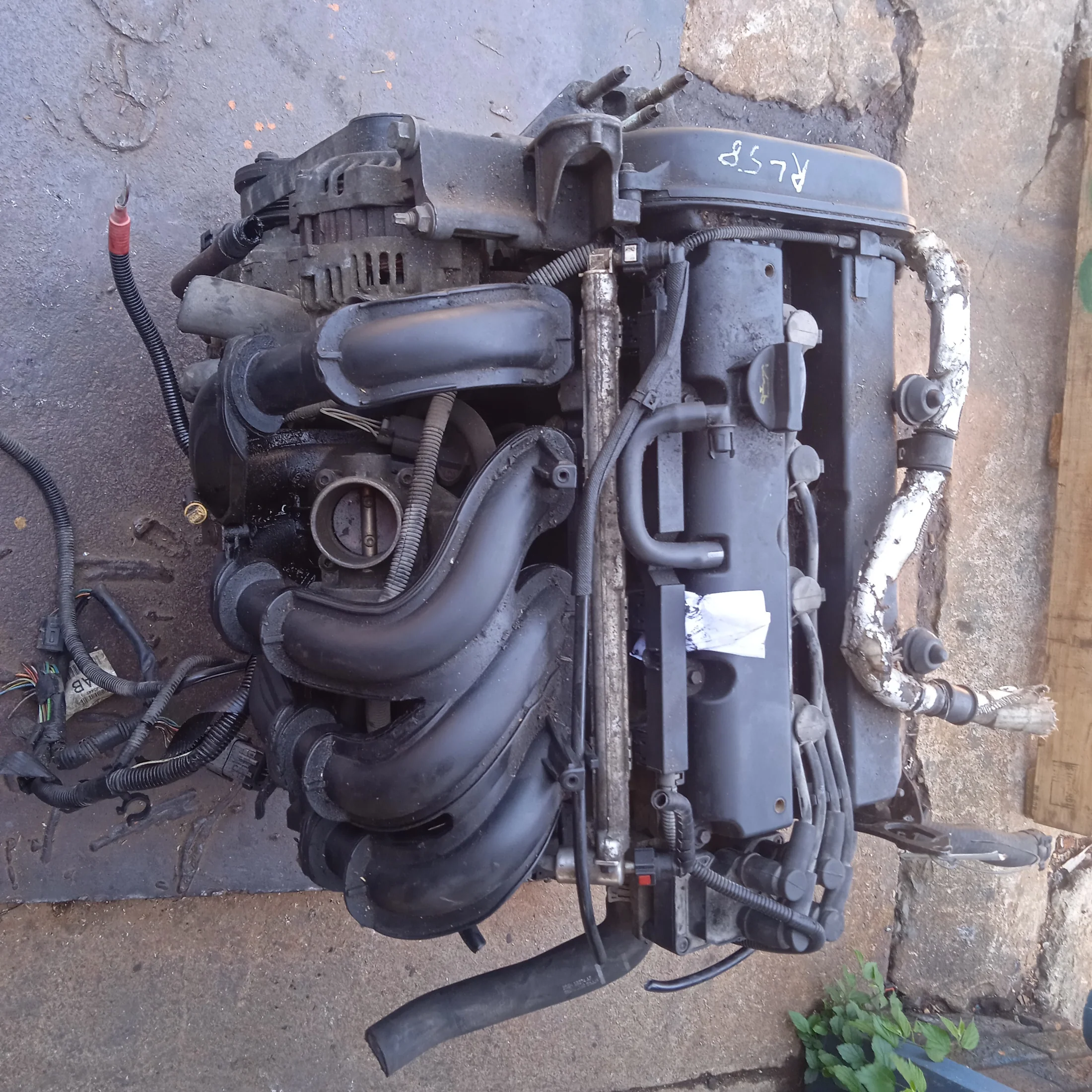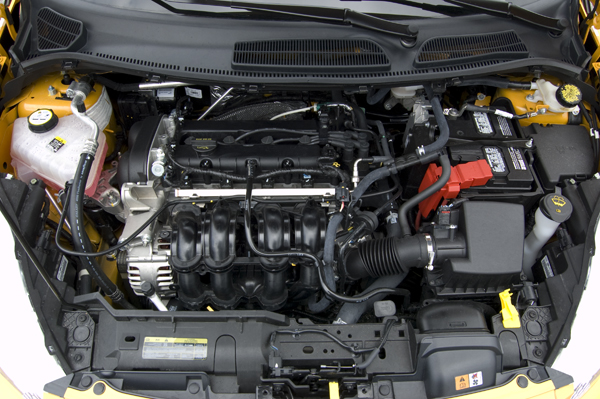How to Maintain Your Ford Fiesta Engine for Long-Term Performance
How to Maintain Your Ford Fiesta Engine for Long-Term Performance
Blog Article
The Future of Engines: Advancements Driving Lasting Power Solutions
As the automobile sector browses the necessary shift towards sustainability, the future of engines is progressively specified by groundbreaking innovations. Electric engine developments, together with encouraging developments in hydrogen gas cells and biofuels, are reshaping the landscape of power solutions. The appearance of hybrid systems further complicates this development, offering both challenges and chances to lower emissions properly. Coupled with the combination of expert system in engine style, these technical strides raise crucial inquiries regarding their long-lasting stability and effect on conventional standards. What might this mean for the industry and consumers alike?
Electric Engine Developments
The evolution of electric engine advancements signifies a pivotal shift in the automotive and aerospace markets, driven by the immediate requirement for sustainable options to fossil gas. This change is identified by substantial improvements in battery innovation, power electronics, and electrical motor layout, which jointly improve the efficiency and performance of electric engines.
Current technologies have actually brought about the creation of lighter, extra energy-dense batteries, such as lithium-silicon and solid-state batteries, which guarantee longer varieties and shorter billing times. In addition, renovations in electric motor performance, such as making use of irreversible magnets and progressed cooling systems, make it possible for electrical engines to operate successfully under varying problems. These enhancements not just enhance lorry performance yet likewise contribute to a decrease in total energy intake.
Additionally, the integration of innovative software program algorithms has actually enhanced power monitoring in electrical vehicles, enabling regenerative braking and predictive billing techniques. As suppliers progressively welcome electrical propulsion, the aerospace and auto fields are experiencing a paradigm shift towards greener modern technologies. This development not only satisfies governing demands but additionally aligns with consumer choices for ecologically friendly transport remedies, solidifying electric engines as a keystone of future sustainable flexibility.
Improvements in Biofuels
As the aerospace and automobile sectors progressively focus on lasting energy sources, innovations in biofuels become a corresponding solution to electric engines. Biofuels, obtained from natural materials such as crops, waste, and algae, provide a cutting-edge method for minimizing greenhouse gas emissions and reliance on fossil fuels.
Recent study has concentrated on enhancing the effectiveness and sustainability of biofuel production. Second-generation biofuels use non-food feedstocks, decreasing competitors with food supply and lowering environmental impact. Moreover, innovations in synthetic biology have made it possible for the design of microbes to generate biofuels a lot more effectively, resulting in higher yields and lower manufacturing prices.
Furthermore, the advancement of drop-in biofuels enables seamless integration right into existing framework, making it possible for a smoother change for industries generally depending on fossil fuels. ford fiesta engine. These gas can be made use of in existing engines without adjustments, facilitating their fostering across different industries
Investments in biofuel technology, in addition to helpful plans, are necessary to drive technology and scalability. As the global neighborhood seeks to combat environment modification, biofuels offer a practical, instant service that straightens with the overarching objective of sustainability in transport and aviation.
Hydrogen Gas Cell Innovation
A growing variety of business and scientists are checking out hydrogen fuel cell modern technology as a feasible choice to traditional source of power in transport and energy systems. This modern technology converts chemical energy from hydrogen right into power with an electrochemical response, with water as the only byproduct, making it an eco-friendly choice.
The core of hydrogen gas cells is the fuel cell pile, where hydrogen molecules are divided into electrons and protons. The flow of electrons produces electrical power, while protons move with a membrane layer to combine with oxygen from the air, developing water. This process causes high effectiveness and reduced emissions, positioning hydrogen fuel cells as a vital gamer in the transition to sustainable power.
Substantial innovations have actually been made in boosting the longevity and effectiveness of gas cells, along with lowering costs through cutting-edge production methods. The development of hydrogen production methods, such as electrolysis powered by renewable energy sources, boosts the sustainability of the total system. As infrastructure for hydrogen refueling expands and manufacturing techniques end up being much more efficient, hydrogen gas cell innovation holds excellent assurance for decarbonizing different industries, consisting of heavy-duty transport and fixed power generation.
Crossbreed Equipments and Their Effect
Crossbreed systems represent a significant advancement in lasting engine modern technology, merging conventional interior combustion engines with electrical propulsion to enhance power performance and lower discharges (ford fiesta engine). This double technique permits automobiles to utilize both source of power, making it possible for higher flexibility in energy intake and minimizing reliance on nonrenewable fuel sources

Along with ecological advantages, crossbreed systems provide customers a feasible change towards totally electrical lorries. They ease range anxiousness by integrating the comfort of fuel with the advantages of electric propulsion, making them an appealing option for a larger audience. As suppliers purchase hybrid technology, the advancement of more advanced battery systems and light-weight products continues to improve efficiency. Generally, hybrid systems stand for a critical step in the direction of achieving sustainable transportation and attending to the immediate requirement for ecologically friendly power remedies.
The Duty of AI in Engine Layout
Leveraging advanced formulas and machine knowing strategies, the automotive market is increasingly incorporating expert system (AI) right into engine style processes. AI boosts the efficiency and efficiency of style by examining large datasets to go to my blog recognize ideal arrangements and performance specifications. This ability permits designers to mimic different operating problems and forecast engine behavior under multiple circumstances, considerably reducing the moment and price connected with traditional prototyping techniques.
Moreover, AI assists in the growth of advanced products and burning processes tailored for sustainability. By enhancing fuel efficiency and reducing emissions, AI-driven styles straighten with worldwide initiatives aimed at minimizing the carbon footprint of automobile engines. Device understanding formulas can additionally anticipate maintenance requirements, causing boosted integrity and durability of engine parts.
In Addition, AI contributes in the click combination of electrification innovations, such as crossbreed systems, where it can enhance battery administration and power healing processes. As the market relocates towards even more lasting power remedies, the function of AI in engine layout becomes progressively essential, driving advancement and improving the efficiency of future engines. Inevitably, the collaboration in between AI and engine design heralds a brand-new age of smarter, cleaner, and more effective automotive technologies.

Verdict
To conclude, the future of engines is being shaped by a merging of ingenious modern technologies that prioritize sustainability. Electric engine developments, biofuel growths, hydrogen fuel cells, and crossbreed systems jointly contribute to a significant decrease in discharges and ecological impact. Furthermore, the integration of expert system in engine style boosts effectiveness and performance. These transformative services emphasize a commitment to developing a cleaner, extra lasting auto landscape, ultimately benefiting both society and the setting.
Electric engine developments, alongside appealing developments in hydrogen fuel cells and biofuels, are improving the landscape of power services. Additionally, improvements in electric motor performance, such as the use of irreversible magnets and advanced cooling systems, allow electrical engines to run efficiently under differing problems. By enhancing fuel performance and lessening exhausts, AI-driven layouts line up with global campaigns aimed at reducing the carbon impact of automobile engines. As check here the industry moves towards even more sustainable power options, the duty of AI in engine style becomes significantly important, driving technology and improving the performance of future engines. Electric engine developments, biofuel growths, hydrogen fuel cells, and crossbreed systems collectively contribute to a substantial reduction in discharges and environmental effect.
Report this page